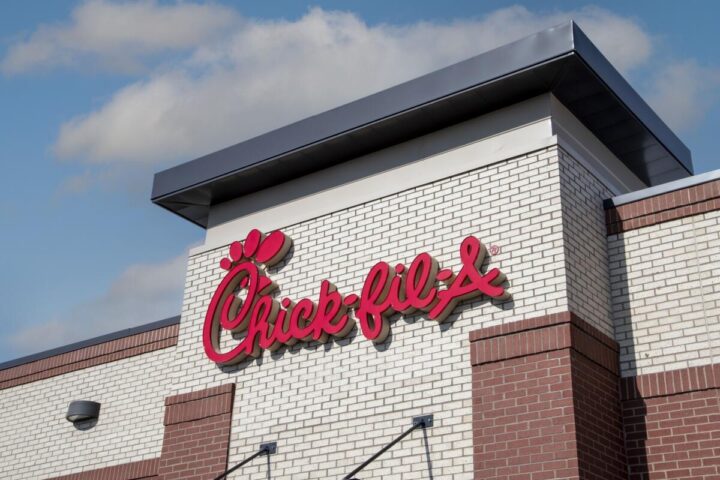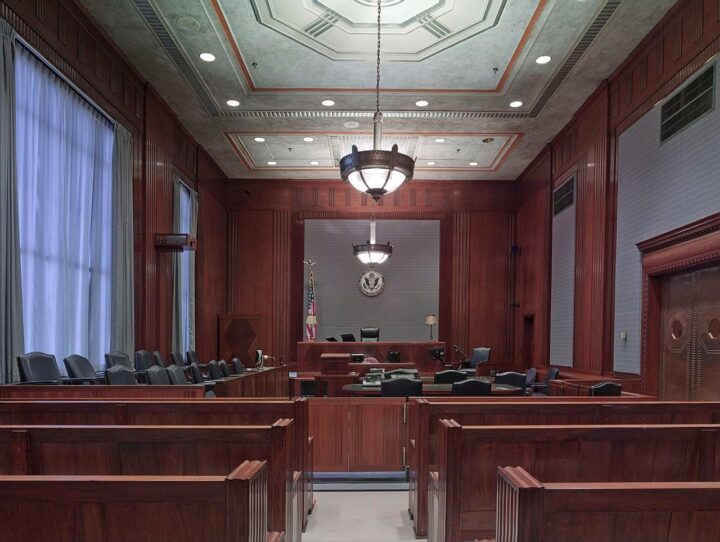Chick-Fil-A Class Action Lawsuit: Key Details and Your Rights Explained
Did you order Chick-fil-A delivery through their Chick-fil-A® One App or website between November 1, 2019, and April 30, 2021? If so, you could have been entitled to compensation as part of the Chick-fil-A class action lawsuit settlement. This legal battle revolved around serious allegations. Customers claimed that Chick-fil-A misled them regarding delivery fees and menu pricing. As a result, thousands of affected customers could claim compensation.
Let us explore what this lawsuit meant for customers and what implications it held. Furthermore, we provide guidance on how participants could effectively navigate their options.
Join us as we uncover everything you need to know about this significant legal case!

Background of the Chick-fil-A Class Action Lawsuit
The Chick-fil-A class action lawsuit originated from allegations against Chick-fil-A, Inc. The company faced accusations of misrepresenting delivery fees. Customers alleged that Chick-fil-A inflated the menu prices for delivery orders placed through the Chick-fil-A® One App or website. They argued that, despite advertising free or low-cost delivery, the company applied hidden markups. These markups made the menu prices for delivery orders higher than those for in-store purchases.
While Chick-fil-A denied any wrongdoing, the company opted for a settlement to sidestep the uncertainty and costs of prolonged litigation. The settlement did not serve as an admission of guilt; instead, it represented a way to conclude the dispute efficiently. It is crucial to understand that the court did not determine that Chick-fil-A engaged in any unlawful conduct.

Eligibility for Settlement Class Members
The settlement applies to customers who ordered delivery through the Chick-fil-A® One App or website. This offer applies to orders placed between November 1, 2019, and April 30, 2021.
However, only participating locations in specific states qualify for inclusion. If you made a delivery order during this time, you might be eligible for compensation!
These states included California, Florida, Georgia, New Jersey, and New York, each represented by its own subclass:
- California Settlement Subclass: Orders placed from Chick-fil-A locations in California.
- Florida Settlement Subclass: Orders placed from Chick-fil-A locations in Florida.
- Georgia Settlement Subclass: Orders placed from Chick-fil-A locations in Georgia.
- New Jersey Settlement Subclass: Orders placed from Chick-fil-A locations in New Jersey.
- New York Settlement Subclass: Orders placed from Chick-fil-A locations in New York.
These subcategories grouped affected customers based on the state where they placed their delivery orders.
Your Legal Rights in the Chick-fil-A Settlement Process
Those identified as eligible Settlement Class Members under the Chick-fil-A class action lawsuit had several courses of action to choose from:
- Submit a Claim Form: This was the only way to receive a Cash Settlement Award or a Gift Card Settlement Award, both up to $29.25. Eligible individuals needed to submit their claim by February 15, 2024, by visiting the designated settlement website, completing the form, and providing any required information about their qualifying delivery order.
- Object to the Settlement: Members who disagreed with the terms of the Chick-fil-A class action lawsuit could submit their objections to the court by January 2, 2024. While objecting provided a means to voice dissatisfaction, it did not exclude participants from the settlement. They would still be bound by the final decision if the court approved the settlement.
- Exclude Yourself: For those who wished to retain the right to pursue their own separate legal action against Chick-fil-A, opting out of the settlement was an option. However, doing so meant forfeiting the right to receive any payment or gift card from this settlement. The exclusion deadline was also January 2, 2024.
- Attend the Fairness Hearing: Class members had the opportunity to express their opinions about the settlement’s fairness directly to the court during a hearing. Interested participants needed to submit a Notice of Appearance by January 2, 2024.
- Do Nothing: By taking no action, individuals would not receive any compensation and would relinquish their right to sue Chick-fil-A regarding the claims involved in the lawsuit. They would, however, remain bound by the settlement’s terms.
How Much Could Settlement Members Receive?
As per the Chick-fil-A class action lawsuit, the Settlement Class Member could claim a Cash Award or a Gift Card Award both not exceeding $29.25. The total amount paid to each individual was based on the total number of valid claims submitted. The administrators then distributed the settlement fund among all approved claimants. This means that the more people sought compensation, the less money each person received.
Submitting a Claim for the Chick-fil-A Class Action Lawsuit
Applicants who fulfilled the above criteria were expected to file the claim through the official settlement website only. The claim form has asked for basic details like name, the contact number of the person, and certain details of the delivery order which is qualifying to apply for this claim. Those people who did not file before 15 February 2024 failed to stake a claim on the compensation.

The Fairness Hearing and What Happened Next
The court scheduled a Fairness Hearing for February 28, 2024, to review the terms of the Chick-fil-A class action lawsuit settlement and assess whether it was fair and reasonable. During this hearing, objections from Settlement Class Members were considered before a final decision was made. If the court approved the settlement, the company distributed payouts to claimants who filed valid claims.
Participants will wait several months for the processing and distribution of payments. Once their claims are approved, they will receive notifications by mail or email. This timeline requires patience as the administration completes the necessary tasks.
Outcome of the Chick-fil-A Class Action Lawsuit
The Chick-fil-A settlement marked a significant moment for consumer rights, emphasizing the importance of corporate transparency in advertising practices. Though Chick-fil-A denied all allegations of misleading delivery fee representations, the case underscored the necessity for consumers to scrutinize service costs, particularly with delivery platforms. For many, the resolution provided modest compensation and the opportunity to voice their experiences in a broader conversation about fair pricing.
Also read: What Time Does Chick-Fil-A Stop Serving Breakfast?
Final Thoughts
The Chick-fil-A class action lawsuit set an example of how consumer protection works within the legal system. While Chick-fil-A’s choice to settle was not an admission of guilt, the case offered a window into how large-scale claims are managed and resolved. For those who were eligible, understanding their rights and making a claim proved crucial to benefiting from the settlement.


